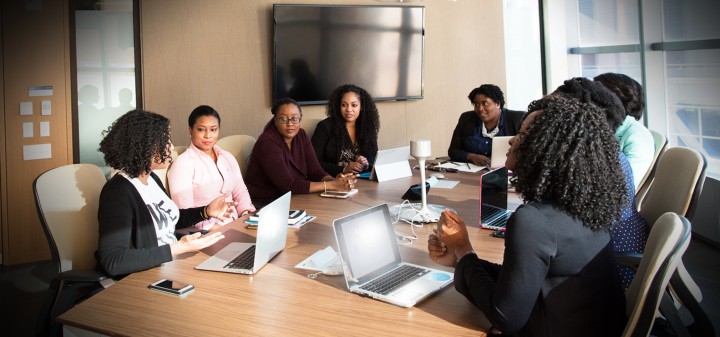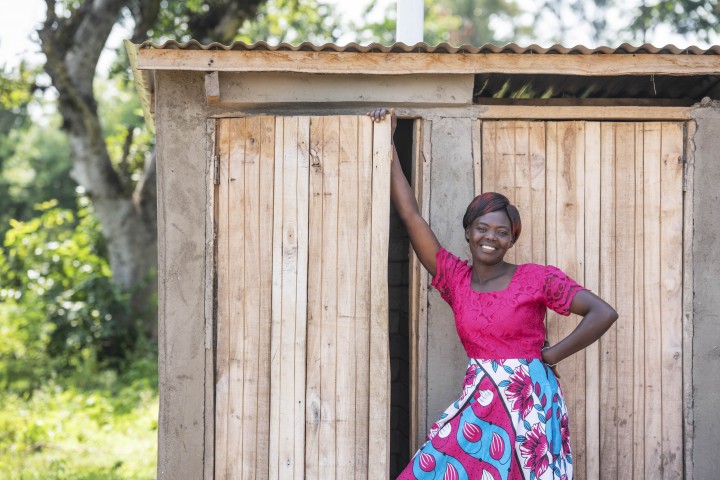2016 - 2019 Integrated rural urban water management for climate-based adaptation in Indian cities (iAdapt) To design and implement a comprehensive blue-print for water management
Awarded a grant under IDRC’s ‘Cities and Climate Change’ initiative, Athena is designing and implementing a comprehensive blue-print for water management – iAdapt. This focuses on the catchment and city level in the south Indian city of Vijayawada. Athena is conducting a baseline of the city’s hydrology and climate. This will then develop into bespoke decision support tools and catchment management plans. Spread over 3 […]
2017 - 2017 Ghana sanitation financing To improve household access to financing products for toilets in the low income urban communities (LIUCs).
Ghana’s low access to adequate and safe compound sanitation signals a need for sanitation financing. It also suffers from an over-reliance on unhygienic public toilets, open defecation and inappropriate disposal of feces. WSUP is therefore implementing a citywide sanitation project using a holistic approach. It aims to improve sanitation outcomes under USAID’s Sanitation Service Delivery Program.
2019 - 2020 Barriers to women adopting decision-making roles in sanitation-related public bodies and attitudinal differences between male and female decision-makers To analyze barriers limiting women’s participation in leadership roles in sanitation-related public bodies in Kenya
The research design employs mixed methods to assess gender balance in decision-making/technical roles. It also identifies barriers to female participation in those roles. The research exams the internal workings of organizations in the sanitation sector, as a potential source of gender inequity in their external service delivery.
2019 - 2019 FSM Capacity Development for Dar es Salaam To facilitate knowledge exchange with the aim of developing an enabling environment for FSM in Dar es Salaam
1. Launching and coordination: - Kick – Off workshop - Coordination meeting 2. Developing advanced understanding of FSM: - Five Trainings for Specific Target Groups 3. Identification of challenges and development of solutions: - First Working Groups Meeting - Second Working Groups Meeting - Knowledge Exchange Platform Meeting 4. Dissemination: - Final Workshop for Presentation of Results […]
2017 - 2025 Financial Inclusion Improves Sanitation & Health (FINISH) Mondial To provide sanitation for all through an integrated model that addresses both the demand and supply side of the sanitation challenge
FINISH Mondial is the scaling of successful FINISH programmes in India and Kenya, which uses a multi-stakeholder approach to involve the entire value chain in sanitation. By (1) raising awareness on and creating a demand for sanitation amongst end-users; (2) mobilising the supply and reuse business of sanitation and (3) integrating local financial resources. (4) Collaboration with government and development partners allows for scaling. As […]
2018 - 2020 EJOM- L’emploi des jeunes crée des opportunités, ici au Mali (FR) (Youth employment creates opportunities in Mali (EN)) To create jobs for young people & returning migrants in Mali
WASTE and RUAF have been working together in the OJEM project to contribute to the development of economic opportunities and to create jobs for young men and women and for returning migrants in Mali. The project takes place in the four cities (regions) of Kayes, Koulikoro, Gao and the district of Bamako, all areas where young Mali people face systemic employment challenges. The project was funded […]
2008 - 2018 Financial Inclusion Improves Sanitation & Health (FINISH) India To supply sanitation for all by integrating the demand and supply side of the sanitation challenge in India
FINISH works with a unique multi-stakeholder approach that involves the entire value chain. By mobilising the supply side of sanitation while integrating financial resources into the value chain, it raises awareness on and creates a demand for sanitation services amongst end-users. This includes improving quality and safety of sanitation services, reducing the price of these services and ensuring proper disposal of the waste produced. Main activities […]
2017 Take-A-Stake Fund for SMEs in WASH and linked sectors To set-up a new Impact Investment Fund for SMEs in the water, sanitation, waste and linked sectors
With support of WASTE, the TAKE-a-STAKE Foundation aims to set-up a new Impact Investment Fund for SMEs in the water, sanitation, waste and linked sectors (eg. renewable energy, agriculture, health) in developing countries and emerging markets, starting initially in Kenya, Uganda and India and expanding to other countries later. These companies are complementary to utilities and centralised solutions and can serve especially also the […]
2018 - 2020 Financial Inclusion & Improved Livelihoods Out of Plastics (FINILOOP) To create green jobs and local circular economies through scaling plastic recycling
FINILOOP aims to create green jobs and local circular economies through scaling plastic recycling. FINILOOP stands for Financial INclusion and Improved Livelihoods Out Of Plastics. The project focuses on increasing recycling rates in Asia and Africa by professionalizing the plastic recycling sector and improving segregation at source at household level. At the same time it will create green jobs and stimulate local circular economies. To scale […]
2016 - 2020 INNOQUA (a Horizon 2020 EU-funded project involving 20 partners) To explore the treatment efficacy of selected nature based wastewater treatment systems as well as the potential for water re-use
INNOQUA is challenging pre-conceived ideas that nature based wastewater treatment is only suitable for rural and remote populations. Harnessing the combined potential of earthworms, zooplankton and microalgae, the modular system is being demonstrated in 11 countries on four continents – in both urban and rural environments. The project is exploring the treatment efficacy of the system as well as the potential for water re-use. Whilst […]
2016 - 2018 Mini Desludging Unit in Ethiopia (MDU) Developing a locally made mini-desludging device in Ethiopia and building business around it
As part of the Emergency Sanitation Project (ESP), we were challenged to develop a desludging device and simple effective faecal sludge treatment methods in Adama City in Ethiopia and to further develop businesses for these devices. By doing so, this project would support both households who have pit latrines that need to be emptied frequently, and at the same time benefit local Micro and Small […]
2016 - 2019 Emergency Sanitation Project Phase II (ESP2) To delevelop innovative concepts for sanitation and faecal sludge management in emergency settings
In Phase II we aimed to provide further evidence for solving some of the most challenging issues in the sanitation agenda and bringing innovative emergency sanitation solutions to scale. The three most significant gaps in emergency sanitation that required our attention in this project were: • Excreta disposal in difficult locations (urban, high water table and flooding) • Latrine emptying and desludging • Centralised excreta disposal options Our activities […]
2017 - 2019 DCAM Benin - Ecological management of faecal sludge and valorization of by-products in Benin To provide a hygienic and durable solution to the practices of indiscrimate disposal of faecal sludge in Parakou
Access to sanitation continues to be a major problem in Parakou, Benin, where a significant proportion of the population continues to lack access to basic sanitation facilities (mainly pit latrines). In addition, Parakou lacks comprehensive sanitation services, as in most cases the faecal sludge collected usually ends up being dumped. This project is essentially aimed at testing a model of financing the operation of an […]
2018 - 2021 Design and roll-out of the FSM toolbox and a MLE platform for urban FSM To design a Monitoring, Learning, and Evaluation (MLE) Platform for Urban Fecal Sludge Management (FSM)
Under a BMGF grant, Athena is designing a Monitoring, Learning, and Evaluation (MLE) platform for urban Fecal Sludge Management (FSM). The project has two components — Monitoring and Benchmarking, and Evidence and Learning. Spread over 3 years, the project uses an evidence-based, stakeholder-driven decision-making approach. The grant will also help address challenges in uptake of the FSM toolbox.
2019 - 2019 Understanding demand and funding for piped water supply in Mandalay To investigate actionable insights on improving water service coverage and the potential for tariff hikes to ensure financial sustainability
The Mandalay City Development Committee (MCDC) is facing severe challenges in improving its water service coverage. It is also facing mounting financial losses. In this context, MCDC called for actionable insights on improving its coverage and the potential for tariff hikes to ensure financial sustainability. Athena and the International Growth Centre’s assessment looks at the demand for water service across six townships and the expectations […]
2017 - 2020 Securing Water For Food (SWFF) - Circular economy with blackwater and greywater recycling for cultivation of exotic vegetables by women Farmers Groups in India under Securing Water for Food To establish a local circular economy model in sanitation for agriculture that is scalable and autonomous with mobilisation of private finance and market-linkage approach
The economic condition in Nilgiris (India) depends on success and failure of horticulture crops. Climate change has resulted in limited water availability for 4-6 months. Excessive application of chemical fertilisers has resulted in declining soil fertility. Additionally, faecal sludge & solid waste in the area are poorly managed impacting the environment. To change this negative cycle, women farmers in the Nilgiris buy and apply co-compost. This […]
2013 - 2019 Financial Inclusion Improves Sanitation & Health in Kenya (FINISH INK) To foster enabling environments for the scaled-up uptake of sanitation systems through local market-based approaches by sustainably expanding access to and demand for sanitation facilities through financial inclusion.
Main activities carried out to ensure a complete loop that leads to the increased uptake of sanitation systems includes: • Demand generation through the sanitation marketing approach • Sanitation marketing training of community health volunteers, independent youth and other developmental professionals of all cadres (and institutionalisation through Amref University) • Training for artisans (masons) in permanent yet cost effective sanitation system construction (training of trainers) • Public-Private Partnerships leverage grant funding through […]
2019 - 2020 Sanitation Data Hubs - first one in Antananarivo, Madagascar To create a blueprint to inform how we scale the Hub’s activities throughout Antananarivo, and replicate hubs into other emerging cities
The Antananarivo Sanitation Data Hub will improve the lives of 350,000 people. For the first time, sanitation organisations will be able to: 1. Better understand the state of sanitation in the 5th arrondissement 2. Track their progress in achieving Sustainable Development Goal 6.2: Sanitation for all 3. Show the need for investment […]
2018 - 2018 Data Dive for Urban Sanitation: World's first data dive looking at optimising urban sanitation data To clean, analyse and interrogate dive one sanitation data set from Lusaka in Zambia
To really allow us to understand the potential power of the data that is being collected in the sanitation sector - and to demonstrate the benefit of harmonising data - we hosted the world’s first data dive for urban sanitation. We brought together 20 data scientists to clean, analyse and interrogate dive one sanitation data set from Lusaka in Zambia. In just two days our […]
2010 - 2016 Water and Wastewater Infrastructure Project in Jordan To deliver improvements in Amman, Zarqa, Ma’an, Tafileh, Jerash, and Irbid water/wastewater facilities
Improving how water resources are utilized and wastewater facilities are managed over the next 25 years, the Water and Wastewater Infrastructure Project (WIP) is responding to dire improvements needed in the water sector. - Studying and preparing water/wastewater master plans, implementing feasibility studies, and preparing tender documents for urgent infrastructure needs. - Selecting sites for new water/wastewater facilities and designing facilities that meet requirements such as reuse […]


















